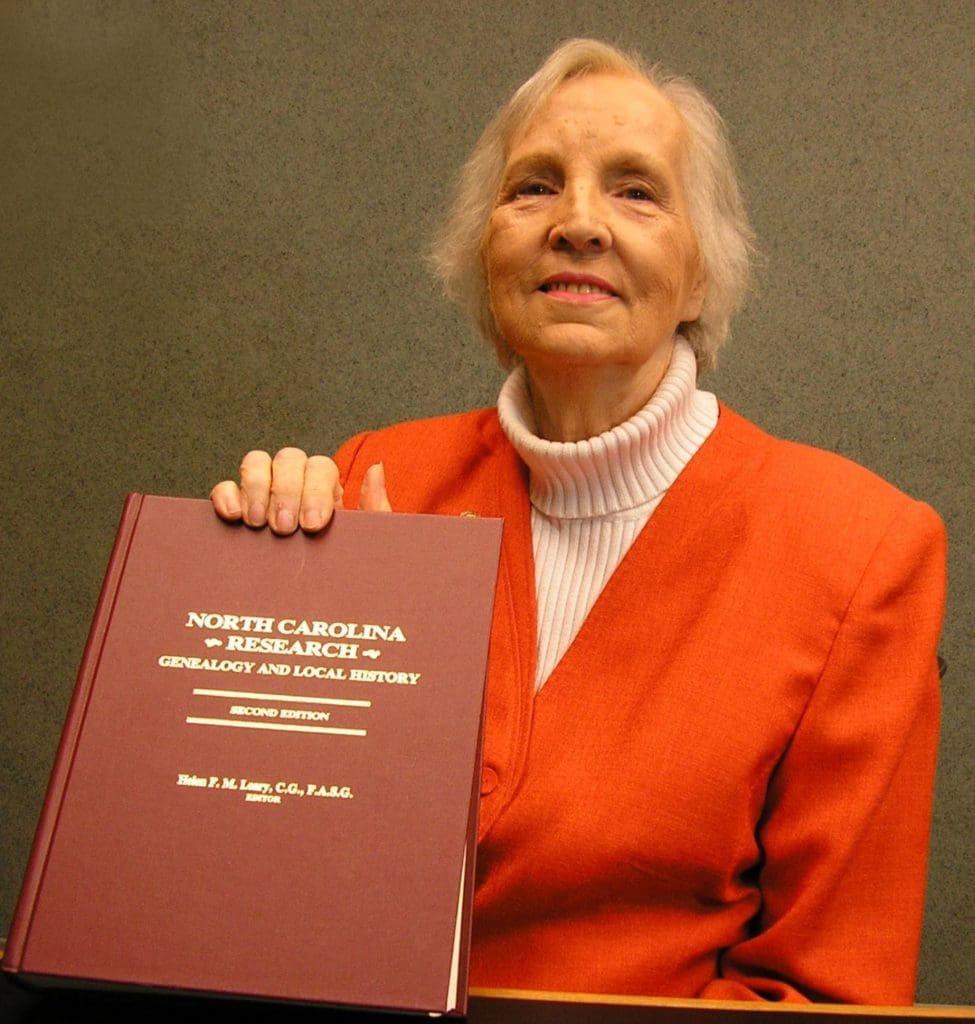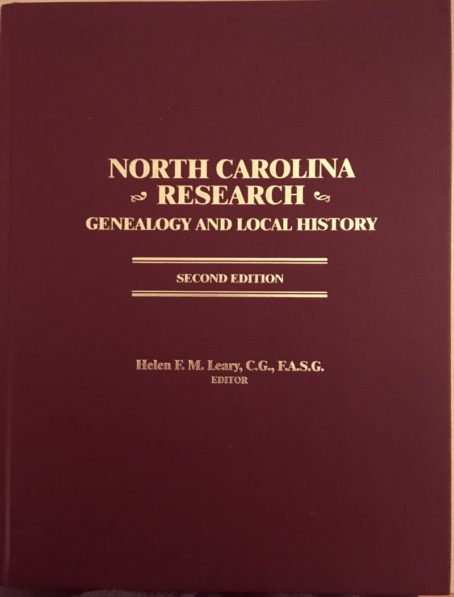Genealogists will find that many families came through North Carolina – some stayed, others moved on, and a few returned.
The North Carolina Series of webinars provides valuable information regarding the history and genealogy of this state and its people. North Carolina’s renowned genealogist, Helen F. M. Leary, CG (Emeritus), FASG, begins the series with the question: “Tarheels in Your Family Tree?”.
View the Webinars
Tarheels in Your Family Tree Part 1
Tarheels in Your Family Tree Part 2
These webinars provide a solid background on the history of the state and the available records. They make a perfect jumping off point to gain basic knowledge about the state of North Carolina that will prove beneficial when viewing other webinars in the North Carolina series.
Mapping Your Ancestors’ Land: How to Do It – And Why Bother
This webinar discusses how to collect the data you need to find your ancestors anywhere that metes and bounds are used as land boundaries.
“The Goodliest Soyle”: Finding, Reading, & Interpreting North Carolina Land Records
This webinar focuses on the deeds, the land-grant process, reading the land records, and analyzing the land records of North Carolina.
Missing Mothers and How to Find Them: Antebellum NC Property Laws and Their Effect on our Research
This webinar is designed to help those who are trying to locate female ancestors in North Carolina. We recognize, in the abstract, that half our ancestors were female. Property law may have masked their identities, but, if we understand those laws, we can direct our research to the records and analyses that help us unmask them.
Proving Parentage with Probate Records: North Carolina Inheritance Laws and Customs
This webinar details where to look for land records and why they are important. North Carolina inheritance law and probate are explained. Ms. Leary also discusses the process of land acquisition and transfer, including the interpretation of deeds and grants. Analysis of the evidence found in these documents can yield clues to your ancestor’s prior location and familial relationships. These may be the solution you have been looking for to solve your genealogical brick wall.

About Helen F.M. Leary, CG Emeritus, FASG, FNGS.
Helen F.M. Leary is a distinguished genealogists who spent her career working to educate all serious genealogists. Helen was editor and contributing author of North Carolina Research, a unique publication existing only for the state of North Carolina. This book has become a foundational text for Southern research methodology. Helen served twenty-three years as a Trustee of the Board for Certification of Genealogists and she served as the president twice. She served as a trustee for the Association of Professional Genealogists, chair of the Federation of North Carolina Historical Societies, and President of NCGS. With Thomas W. Jones, Helen edited the BCG Genealogical Standards Manual. She developed and coordinated the Professional Genealogy Track at Samford University Institute of Genealogy and Historical Research. Helen wrote several chapters of Professional Genealogy: A Manual for Researchers, Writers, Editors, Lecturers, and Librarians including the chapter on lecturing. She also has an extensive portfolio of scholarly publications featured in the National Genealogical Society Quarterly, the American Genealogist, and NCGS Journal.

About North Carolina Research: Genealogy and Local History
Edited by Helen F. M. Leary, CG Emeritus, FASG, FNGS
North Carolina Research Genealogy and Local History set the standard for state research guides with its award-winning 1st Edition published in 1980. Now in its second edition, it is useful for research in nearly every southeastern state that had its legal foundation in common law. It’s not just how to do North Carolina genealogy, it’s how to do genealogy period! The 1996 edition has been reformatted and re-indexed for greater ease of use, and includes updated information on North Carolina State Archives holdings and finding aids, state and federal records now available for research, and a completely revised chapter on research strategies that addresses the needs of both novice and advanced genealogists.
View the entire Table of Contents.

